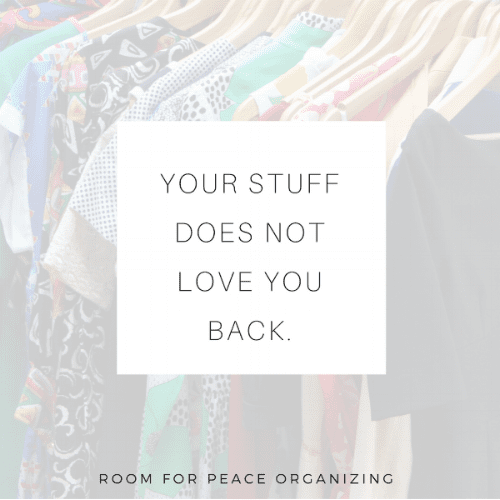Clutter often appears when we give into false notions of lack. We then try to compensate for these feelings of lack by bringing MORE into our homes.
That initial dopamine kick we get out of buying something new and bringing it home leads us to believe that whatever that “thing” is will be full of promise and bring us a little closer to happiness and prosperity. The truth is, that feeling fades just as fast as it appears. And there we are; right where we started, with unfulfilled promises from our new “thing” and a couple dollars fewer in our bank account.
Even if after buying these things we realize that it was a mistake, (i.e. the never worn pair of shoes, gym equipment collecting dust in the corner, food that has gone expired) we hold onto them anyway because admitting that we messed up in buying them is a painful emotion.
OR we hold onto something because it was a gift, or something that we once loved (though it no longer serves us in our current lives).
It’s the idea of sunk cost, which I sometimes relate to a bad relationship:
If you are in a miserable relationship with a person that doesn’t make you happy, do you stay in it just because you’ve been in it for 5 years and they USED to make you happy? Or do you thank them for what they brought into your life at the time and move on to someone in line with you current values and happiness?
So often we hold onto things that don’t serve us or fit into our lives SIMPLY because we’ve already held onto them for so long.
And the longer we hold onto something, the more committed and emotionally attached we become; eliciting more guilt and discomfort when confronted with the idea of parting ways with it.
Take a giant step back, and try to honestly look at your “stuff” for what it is: just stuff. Inanimate objects that should not hold any authority or emotional attachment over you.
Because the fact is: STUFF DOESN’T LOVE YOU BACK.
You can not hurt your stuff’s feelings. Free yourself from the guilt you feel from projecting false emotion and connection to your things. It is only then that you’ll be able to differentiate and weed out the unloved and useless from the things you actually care about.

